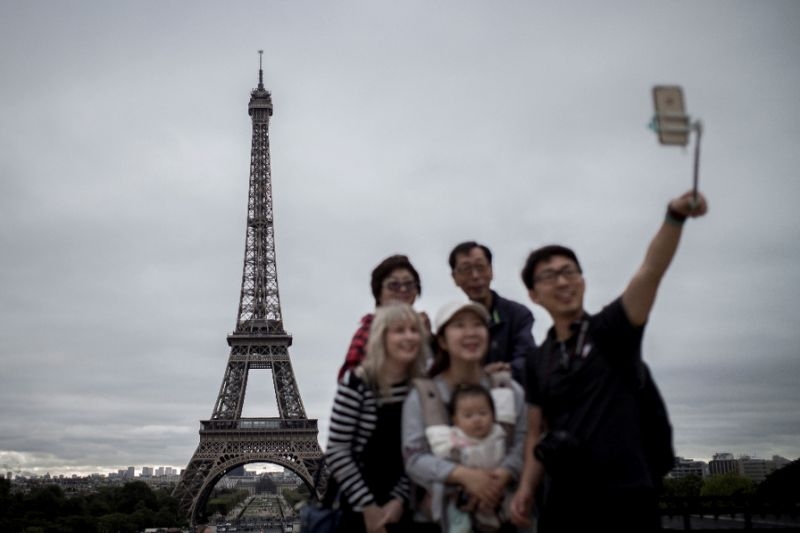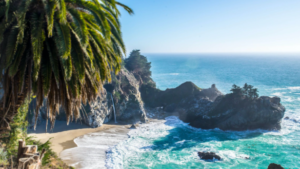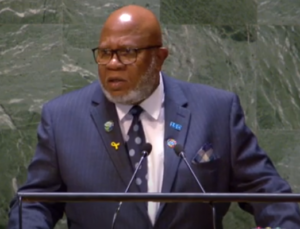Eight Travel Predictions for 2018

From new technology frontiers to walking your way to wellness and big bucket list expeditions, here are the biggest travel trends for 2018.
Looking for inspiration for your 2018 travel? Facilitating reservations for more than 1,500,000 room nights each day, the experts at Booking.com, the global leader in connecting travellers with the widest choice of incredible places to stay, have combined customer insights from over 128 million real guest reviews with research from 19,000 travellers across 26 countries around the world to reveal the biggest travel predictions for 2018.
1. New tech frontiers – Immersive experiences will reach the next level in 2018, with travellers looking to technology to help better understand a destination or accommodation before they book. Artificial intelligence and digital technology are helping consumers turn the corner when it comes to smart destination intuition, reshaping the way we research, book and experience travel. Almost a third (29%) of global travellers say they are comfortable letting a computer plan an upcoming trip based on data from their previous travel history and half (50%) don’t mind if they deal with a real person or computer, so long as any questions are answered. Over six in 10 (64%) of travellers say they would like to ‘try before they buy’ with a virtual reality preview, while 50% find that personalised suggestions for destinations and things to do encourages them to book a trip. Taking all the hard work and stress out of decision making, in 2018 technology will continue to guide us seamlessly to find the best stays and experiences for us.
2. From dream to reality – 2018 is the year to dream big as 45% of travellers have a travel bucket list in mind and the majority of those (82%) will aim to tick one or more destinations off their list in the coming year. The yearning for experiences over material possessions continues and drives our desire for more incredible and memorable trips. With dwindling patience, instantaneous appetites and empowered by technology, travellers in 2018 will seize the moment like never before.
Most likely to feature on a bucket list is seeing one of the wonders of the world, as almost half of travellers (47%) will look to tick this off in 2018. Over a third (35%) yearn to tantalise their taste buds by trying a local delicacy, 34% want to head to an island paradise and 34% are thrill seekers wanting to visit a world famous theme park. Adrenalin junkies should consider Orlando, USA, The Gold Coast in Australia and Dubai, United Arab Emirates the top destinations endorsed by Booking.com travellers for theme parks[i]. The other top travel activities to complete in 2018 look set to be experiencing a unique cultural event (28%), learning a new skill (27%), going on an epic road or rail journey (25%) and visiting a remote or challenging location (25%).
3. Retro reboot – As well as new experiences, travellers will be revisiting their favourite childhood memories as part of their trips in 2018. Blending the future with the past, next year’s travellers will be inspired to return to previously loved destinations and explore them in a whole new way. A third of travellers (34%) will consider a holiday they experienced as a child for 2018.
These popularity of these vintage vacations stems from the feelings of nostalgia and happiness the destinations evoke. Travellers say that former family holidays recall the fondest memories, even more so than childhood sweethearts or family pets. Millennials look set to be even more sentimental with 44% of 18 to 34 year olds keen to hark back to favourite family destinations. With 60% of travellers in 2018 intending to post on social media each day, we can expect to see these nostalgic places brought back to the future and captured for social posterity.
4. Pop culture pilgrimage – With the world at our finger tips, we rely on many sources to inspire us to travel to new destinations. Tapping into our passions is one way of helping to identify the locations most suited to us – from culture and entertainment, to food and history. In 2018, television shows, films, sport and social media in particular look set to have an increasingly significant sway over booking decisions, as travellers turn to pop culture for their travel inspiration. Reading blogs or watching YouTuber recommendations will spark ideas for four in ten (39%) travellers and on screen locations from television, film or music videos will win over 36% of travellers in the coming year. More than a fifth (22%) of travellers will be tempted by travelling for a major sporting event, with 43% of those considering a summer of football in Russia.
The top television programme locations travellers most want to visit in 2018 are Croatia, Spain and Iceland inspired by Game of Thrones (29%), London as seen in Sherlock and the Crown (21% and 13%), New York and Manhattan from Billions (13%) and Los Angeles viewed in Entourage (10%).
5. Walk your way to wellness – The trend for wellness getaways isn’t slowing down for 2018, with almost double the amount of people planning to take health and wellbeing trips in 2018 compared to 2017 (from one in 10 in 2017 to nearly one in five in 2018). Trips enjoying particular prominence will be those that involve travelling on two feet. A brilliant way to take in the local landscape, walking will be the ultimate way to explore next year, with 56% of travellers saying they want to do walking or hiking trips in 2018. A new generation of walkers will lace up their boots.
Other health and wellness inspired activities high on the travel agenda in 2018 include visiting a spa or receiving beauty treatments (33%), cycling (24%), water sport activities (22%), taking a full body detox holiday (17%), going on a yoga retreat (16%), running (16%) and undertaking meditation/mindfulness (15%). Embracing such experiences is popular with travellers, with 59% saying they prioritise experiences over material items when on holiday. Partaking in a health and wellness trip may also be good for the mind, as over half (55%) say that going on holiday is a moment for them to reflect and make better lifestyle choices – something which can be easily facilitated through a health and wellness trip.
6. Economic intuition – Every year, travellers are becoming savvier, especially when it comes to getting the most for their money. With significant numbers basing their travelling decisions on finance-related matters, 2018 will see travellers looking to be even more economically intuitive. Nearly half (47%) will take currency exchange rates into consideration when planning their travels for the year, and almost the same amount (48%) will think about the economic climate of a destination before making the decision to travel. Good news for the retail industry, a third of travellers (30%) also plan to make more purchases from airport duty free shops in 2018 and one in four (26%) will even go on holiday specifically to buy goods such as fashion items because they are cheaper than in their home country.
More confident to follow their own intuition, travellers are less obliged to follow the herd, with over half (57%) wanting to do more independent travel in 2018, placing growing value on personalised endeavours, looking for the best deals and putting together their own packages – all with the help of apps and technology. Almost half of travellers (44%) will use travel apps more in 2018, with technology continuously developing to make travel stress free in 2018. This includes geo-location technology directing you to your accommodation, all within one click from your app, or planning activities while on holiday in just a few simple taps of your smart phone, as over two in five (41%) expect to do in 2018.
7. The great mate escape – 2018 is gearing up to be all about the group get-away. When asked who their 2018 travelling companions were likely to be, the segment with the biggest increase when compared to 2017, was travelling with a group of friends, increasing from 21% to 25%
With 2018 shaping up to be all about the experience, it’s not just about the destination but also the people that matter to create memories. Mate’s escapes are the ultimate social time away from our everyday pressures, reducing stress and building connections with your friends. With the world only a click away it’s never been easier to find the perfect place to stay and explore with a large group of friends looking for adventure across every corner of the globe.
Friend based getaways also have financial advantages as four in 10 (42%) said that joint holidays with friends will allow them to stay in accommodation they wouldn’t be able to afford on their own.
8. Live like a local, not with one – In 2018, rental homes are going to be particularly popular – not just for travellers looking to stay in one, but also home owners who are thinking of inviting others to stay in their own abode. One in three travellers (33%) say they’d prefer to stay in a holiday rental (a holiday home or apartment) over a hotel and one in five (21%) would consider listing their home on a travel accommodation site.
When it comes to playing the role of a host, travellers reveal that it isn’t about having them there all the time. Travellers are keen to have a local experience and will look to hosts for their expertise, as a quarter of travellers say it will be important that their host has strong local knowledge about local food and places to visit (25%), but travellers will want the flexibility to interact with hosts on their own terms. In 2018, it will be important for travellers that their host is available but not too over-bearing (30%) and one in 10 (12%) want a host who they don’t have to speak to at all.
Pepijn Rijvers, Chief Marketing Officer at Booking.com comments: “As technology continues to advance, it’s also advancing and enhancing the way we travel. It empowers us to plan the perfect holiday and makes it easier to explore further and with more confidence, flexibility and options than ever before.
At Booking.com, we build and design everything we do around our customers, responding to their wants and needs when it comes to researching, booking and enjoying travel. As expectations evolve and new trends rise to the fore, we’re excited to see how emerging technology can continue to help and guide people to get the best experience for them in 2018.”
Courtesy : Booking.com
Oct. 2017












